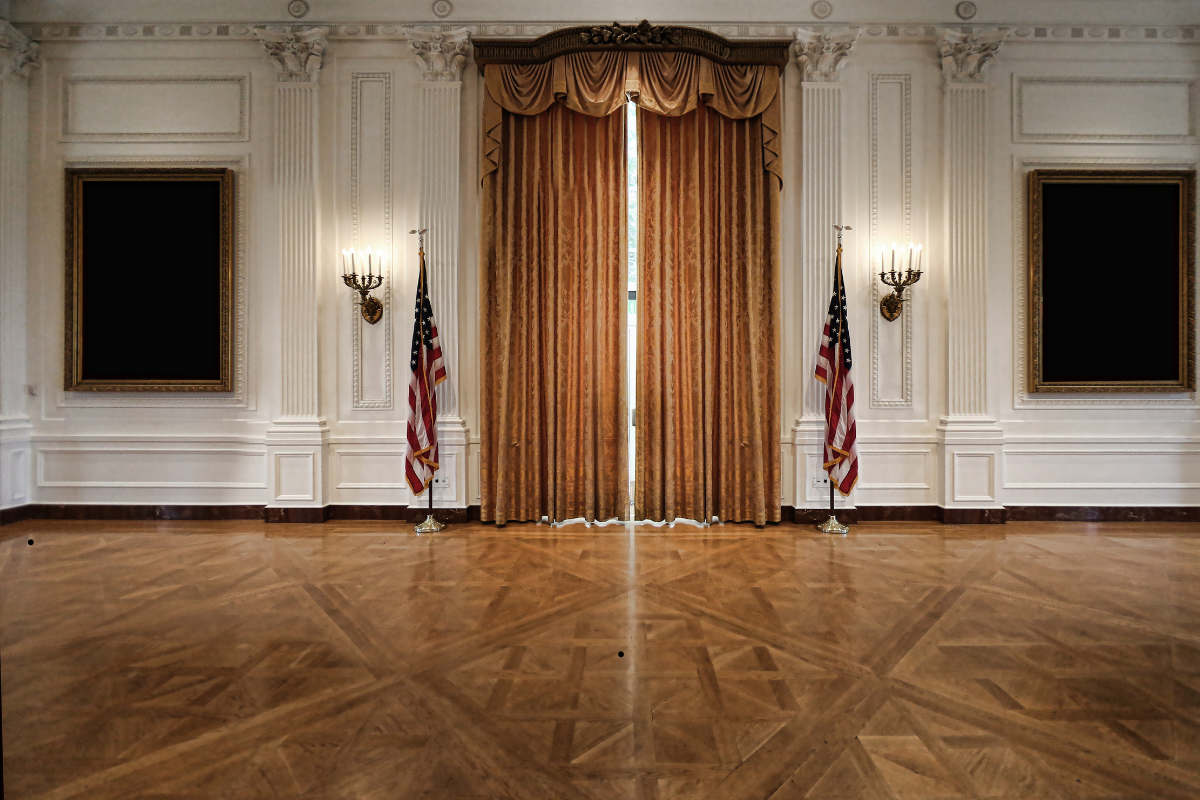Federalist 63
The unicameral legislature under The Articles of Confederation allowed each state one vote, regardless of the number of representatives, thus reinforcing the preeminence of state governments over the federal government and leaving no doubt as to the preponderance of sovereignty. Having created a “popular” legislative branch in the House of Representatives, delegates at the Constitutional Convention turned their attention to the creation of a second branch – an effort regarded by some delegates (and certainly delegates at the state ratifying conventions) as unnecessary, dangerous to liberty, and contrary to the interests of the states who were, after all, the parties ratifying the Constitution.
Debates concerning the nature and composition of the Senate occupied an inordinate amount of delegates’ attention, and probably nowhere in the proceedings did two salient divisions reveal themselves more dramatically: the authority of the states and the division between social and economic classes. Some who opposed the Senate (such as Luther Martin), or at least its composition, did so to protect the interests of the states while others (such as Cato) opposed it for giving too much power to monied interests.
At the Convention
The convention nearly collapsed because of debates over the Senate and were it not for a secret meeting held by delegates from the larger states on July 17 the new Constitution may well have been stillborn. Much of the debate involved the mode of election and the length of terms and whether there should be term limits, but underneath those debates were questions of state sovereignty and – maybe more importantly – the nature of democracy itself, the Senate being what the author Cincinnatus referred to as “a baneful aristocracy, which will swallow up the democratic rights and liberties of the nation.” It was “a monster in the political creation” (a mishmash of legislative, executive, and judicial functions) that “we ought to regard with horror” for it erected “a domineering crest in triumph over our prostate liberties.” This aristocratic body would render democracy “bereft of its powers” and reduce it to “a melancholy monument of popular impotence.”
Those who favored a Senate wanted even longer terms – six years being the compromise number – for Senators and wanted them either elected by members of the House or in regional districts. Opponents saw this as an abeyance of the democratic principles which underlay all popular government. Nor was there agreement upon how representation was to work in the Senate, with the delegation from Delaware reminding the rest of the delegates that any diminution of the principle of equal state suffrage in the Senate would require them, under their commission, to secede from the proceedings themselves. No idle threat, that, and one that sent other delegates scrambling to create a system that maintained aristocratic privilege without forcing delegates to withdraw altogether.
Just Say No To Democracy
Madison makes his position on these questions clear in Federalist 63, just as he did at the Constitutional Convention: Yes, the Senate is an anti-democratic body, and thank goodness for that. In Madison’s telling the great danger to the United States came not from an absence of democracy but from the excess of it. Indeed, democracy proved a threat to the fundamental principle of good government, for “liberty may be endangered by the abuses of liberty as well as by the abuses of power” and furthermore “there are numerous instances of the former as well as of the latter; and that the former, rather than the latter, are apparently most to be apprehended by the United States.” In our own age with our relentless pearl-clutching concerning “the state of our [sic] democracy” we might do well to remember that those who framed our Constitution saw democracy as a threat to liberty rather than an expression of it.
For critics, a free and popular government required a constant connection between representatives and the people they represented, and this required that they be returned to the people and live under the laws they helped craft. Brutus reminded readers that representatives “should not be so long in office as to be likely to forget the hand that formed them, or be insensible of their interests.” This problem became more pronounced with Senators who, because of the length of their terms, would be largely “absent from the state they represent” and, living in the corrupt federal city where they would mingle “with the great and the mighty of the earth,” come to possess “very little of the feelings of the middling class of people.” For some delegates, such as Elbridge Gerry, that was the point, for while the House would represent the interests of farmers and those in the lower and middle classes, the Senate was necessary to represent the “the great mercantile interest and of stockholders” (7 June) and, perhaps worried that those interests were underrepresented, Hamilton “acknowledged himself,” according to Madison’s notes, “not to think favorably of Republican government.”
The Excesses of Democracy
Madison’s reasoning didn’t exactly follow Gerry’s or Hamilton’s concerns for monied interests, but he did worry about the excesses of democracy. Given his experience in the Virginia state legislature and his study of history, Madison at this time worried about the twin dangers of external threats and internal dissolution, and the proper response to these dangers was the stabilizing of democratic impulses. Madison believed that government, like individuals, required some sort of check upon the passions. Just as reason checked our momentary passions as individuals, so too did a council of the wisest and most temperate members of the community operate as a check on the furious passions of the democratic branch. Edmond Randolph, when discussing the Senate, had at the Convention noted that “all evils” infecting good government resulted from “the turbulence and follies of democracy,” a view not far from Madison’s own in 63.
Madison worried that the short terms and minimal qualifications for Representatives, as well as the unwieldy size of the House, would render the body dominated by momentary passions, thus destabilizing government itself. What was needed was a principle of continuity and stability to operate as a counter-weight to democracy’s excesses and tempestuous fury. The Senate would “cool” the heat of the House. Part of the problem was the issue of focus: The House would be dominated by headlines, by immediate interests, by short-term gains and an absence of long-term planning while the Senate would provide the republic with a “succession of well-chosen and well-connected measures” that would “have a gradual and perhaps unobserved operation” on the fortunes of this nation.
Such operations would, in Madison’s view, be necessary not only to stabilize government but to earn the respect of foreign powers. By lodging the treaty power in the Senate the delegates to the convention insured the kind of continuity in legislation that would raise America’s standing in the world and impress foreign powers. Not content to be a nation that minded its own business, Madison reminded readers that
“an attention to the judgment of other nations is important to every government for two reasons: the one is, that, independently of the merits of any particular plan or measure, it is desirable, on various accounts, that it should appear to other nations as the offspring of a wise and honorable policy; the second is, that in doubtful cases, particularly where the national councils may be warped by some strong passion or momentary interest, the presumed or known opinion of the impartial world may be the best guide that can be followed.”
What this presumed opinion of an “impartial” world is I am at a loss to say, but Madison does highlight an enduring division in our politics between those who are content to mind their own business and not worry too much about what other people think and those who consider our reputation among foreign peoples or leaders to be dispositive for our politics. Those blithely indifferent to such opinions remain perpetually bewildered by those desperate for approval and wonder how such need for approval affects our own deliberations about the politically desirable, while those attentive to foreign opinion marvel at the naivete and benighted isolationism of those who don’t think Brussels should dictate to Washington.
The Senate and Foreign Policy
Which is not to gainsay Madison’s point, for whatever role America plays in the world it already was the case that it had no role to play. Probably most citizens had no appetite for the outsized role envisioned by a Hamilton, but neither were they inclined to believe that commerce or security had no place in our politics. Given the exigencies of such engagements the need for a so-called stabilizing force increased as America turned its attention outward. Or so Madison thought, for such attentiveness required wisdom, experience, and freedom from the passions of the moment (are we still eating “freedom fries”?).
The problem with democracy is that it is too democratic, too driven by temporary passions. The people, Madison believed, needed to be saved from themselves, and the Senate was needed as a:
“…defense to the people against their own temporary errors and delusions. As the cool and deliberate sense of the community ought, in all governments, and actually will, in all free governments, ultimately prevail over the views of its rulers; so there are particular moments in public affairs when the people, stimulated by some irregular passion, of some illicit, advantage, or misled by the artful misrepresentations of interested men, may call for measures which they themselves will afterwards by the most ready to lament and condemn. In these critical moments, how salutary will be the influence of some temperate and respectable body of citizens, in order to check the misguided career, and to suspect the blow meditated by the people against themselves, until reason, justice, and truth can regain their authority over the public mind?”
Madison worried constantly about the problem of demagoguery, of skilled rhetoricians able to rile up the passions of the people and direct those passions either to an augmentation of the leader’s power or to ill-advised policies dangerous to an ordered liberty. Reason, besides being cool and deliberate, is also a safeguard and stabilizer. Without it we become like the democratic assemblies of Athens who gave Socrates hemlock one day and built a statue to him the next.
But what assurances did we have that the Senate would act on a cool, deliberate sense of the well-being of the community, focusing on the needs of the whole rather than representing the interests of the parts? One part of the debate at the Convention involved the phrasing of Article I section 3, deleting the “The national Senate” and replacing it with “The Senate of the United States,” thus conceding that the Senate was not there primarily to be an avatar for the interests of the nation but to represent the states themselves. While it was the case that “the people [could] never wilfully betray their own interests” they could “possibly be betrayed by the representatives of the people” and that danger would “be evidently greater where the whole legislative trust is lodged in the hands of one body of men, than where the concurrence of separate and dissimilar bodies is required in every public act.” Perhaps, but only so long as Senators themselves remained connected both with the people and with their states. The Anti-federalists once again did not share Madison’s confidence that this was the case, a lack of confidence validated by the ratification of the 17th Amendment.
Director of the Ford Leadership Forum, Gerald R. Ford Presidential Foundation
Related Essays




